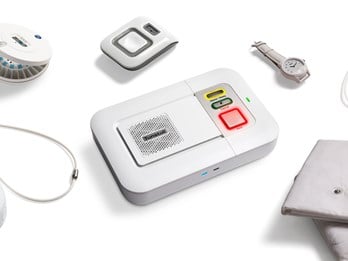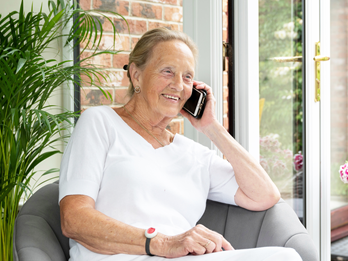Housing and Dementia
Housing and Dementia
Sep 7, 2023
 |
September marks World Alzheimer’s Month, which aims to raise awareness and challenge stigma surrounding Alzheimer’s and dementia. Jeremy Porteus, Chief Executive of the Housing LIN shares his views on the importance of considering housing when supporting people living with dementia. Dementia is a global challenge, with around 50 million people living with the condition worldwide. There is a great focus on the health and care needed to support them but, as highlighted in the APPG Inquiry report I co-authored, ‘Housing for people with dementia: Are we ready?’, less so on how housing can contribute towards helping people to live well with dementia. However, the environment we live in is important to everyone, and can be more so to people with cognitive needs. Very often, a change of environment can be detrimental to the wellbeing of someone living with dementia, and it may only require small changes to support them to live well and remain independent. |
Equally, when someone with dementia needs more support, good quality purpose-built housing with care (such as extra care housing) can become an appropriate choice, its vital that these environments have been designed and built considering the needs of people living with dementia.
Whether new build or in existing accommodation, research by the University of Worcester DemECH project has also shown that there are a number of practical ways the housing with care sector can help people with dementia enjoy a greater quality of life for longer, and design and technology are key.
Design
All professionals working in the housing sector, from commissioners and planners to architects and construction teams have a role to play in creating dementia-friendly environments. Layouts should provide as much space as possible to move around, making navigation easier and preventing falls. Good lighting is essential, making it easier to see and make sense of location. Contrasting colours when decorating can make doorways and furniture easier to identify, and glass fronted cupboards can help to locate items. It can be helpful to clearly demarcate thresholds on the floor and avoid visually confusing dark rugs and mats as they may be mistaken for a hole in the ground.
Technology
There is a wide range of technology available that can help people with dementia to live well for as long as possible, whether this is in a private individual dwelling or a grouped living environment.
Telecare systems use sensors around the home to raise an alert with a specialist monitoring centre if they detect an event such as a fall, flood or fire. These sensors can operate without the person with dementia having to actively use them, and also allow users to easily call for help if they need it. An appropriate response can then be sent, whether to an on-site carer in the scheme, a neighbour or nearby family member, or a response team or the emergency services. The same technology can be used in sheltered housing, extra care or residential care, helping staff to target care where and when it’s needed most and enabling a least restrictive approach. For example, a bed sensor can alert a carer if someone has left their bed and may need assistance, reducing the need for regular night time checks, maintaining dignity, increasing sleep quality helping to prevent falls, and enabling staff to provide more proactive care.





